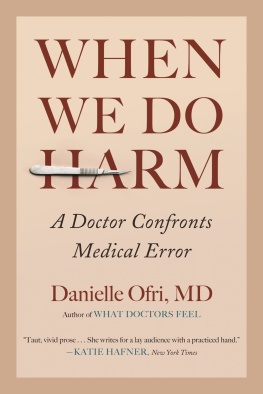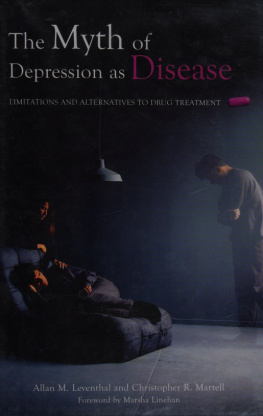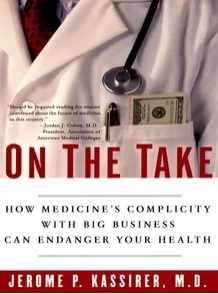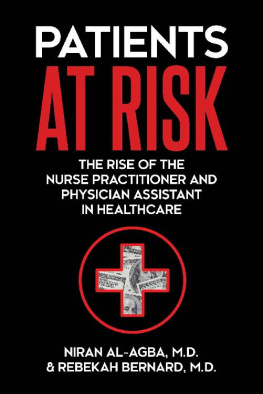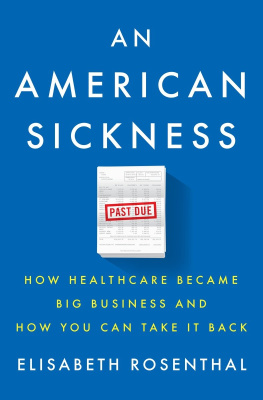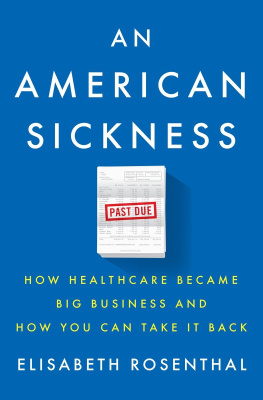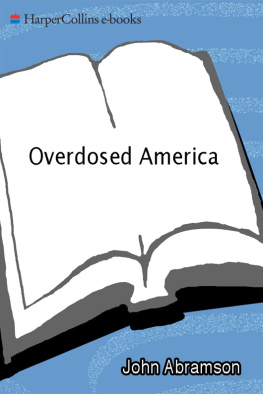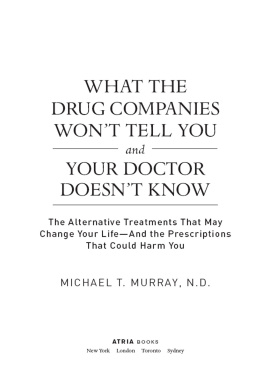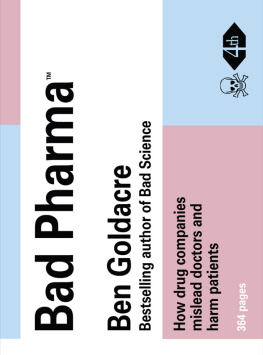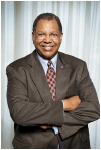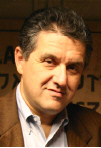DR. OTIS WEBB BRAWLEY, M.D., is the chief medical and scientific officer and executive vice president of the American Cancer Society. Dr. Brawley currently serves as professor of hematology, oncology, medicine, and epidemiology at Emory University. He is also a CNN medical consultant. He is a graduate of the University of Chicago, Pritzker School of Medicine and he completed a residency in internal medicine at University Hospitals of Cleveland, Case-Western Reserve University, and a fellowship in medical oncology at the National Cancer Institute.
PAUL GOLDBERG is an award-winning investigative reporter who covers oncology for The Cancer Letter , a weekly publication focused on drug development and the politics of cancer. His articles have appeared in The New York Times, The Wall Street Journal, The Washington Post, and The Washington Monthly, and he has been featured on 60 Minutes, 20/20, CNN and NPR. Goldberg is also the author of two books on the Soviet human rights movement.
Acknowledgments
I owe much to my mother and father, who did not just work to create opportunity for me and my sisters but made it known that they expected us to do well. My father in particular had an inherent curiosity and an intolerance of wasted opportunity. He imparted those traits in me, and the Jesuits even beyond Polo and the Reverend George R. drove it home.
I also know that it takes a village as my aunts and uncles worked hard to support the vision. I was fortunate as a number of people from the old neighborhood, from gang members to numbers runners, decided I was a good investment.
The lay teachers and sisters of the Immaculate Heart of Mary at St. Cecilia and the lay teachers and Jesuits at University of Detroit High also molded me, infusing values and warning me about the world, its dangers and its challenges, but also enticing me with its beauty. I have to mention good diocesan Basilian and Jesuit priests who befriended me and taught me.
For a time, for practical reasons of survival, I was what I will call an adjunct member of a gang in the inner city of Detroit, but I was also a member of a positive youth gang at U of D High. At the High, as we called it, I had a group of friends with whom I debated, participated in Model United Nations, and discovered the world. I owe a lot to Michael Montgomery, Mathew Wilbert, Mark Nagel, Mark Dreyer, Tony Vizzini, and Roger Barris. They were a positive youth gang for me and are still dear friends.
I am fortunate that I have always found good influences. At the University of Chicago I was encouraged by people to whom I will always be indebted, especially Elliot Kieff, Jonathan Fanton, and John Ultmann. Later Vivian Pinn, Al Rabson, and Barry Kramer would fulfill this role.
It is fascinating, the rainbow coalition of blacks and whites and of Jews, Catholics, and Protestants.
I am of course grateful to my patients and their families and especially those who let me use their stories in this book. Patients and their experiences have been the most important element of this doctors education.
Otis Brawley
Chapter 1
Chief Complaint
SHE WALKS THROUGH the emergency-room doors sometime in the early morning. In a plastic bag, she carries an object wrapped in a moist towel.
She is not bleeding. She is not in shock. Her vital signs are okay. There is no reason to think that she will collapse on the spot. Since she is not truly an emergency patient, she is triaged to the back of the line, and other folks, those in immediate distress, get in for treatment ahead of her. She waits on a gurney in a cavernous, green hallway.
The chief complaint on her chart at Grady Memorial Hospital, in downtown Atlanta, might have set off a wave of nausea at a hospital in a white suburb or almost any place in the civilized world. It reads, My breast has fallen off. Can you reattach it?
She waits for at least four hourslikely, five or six. The triage nurse doesnt seek to determine the whereabouts of the breast.
Obviously, the breast is in the bag.
* * *
I am making rounds on the tenth floor when I get a page from Tammie Quest in the Emergency Department.
At Grady, we take care of patients who cant pay, patients no one wants. They come to us with their bleeding wounds, their run-amok diabetes, their end-stage tumors, their drama. You deal with this wreckage for a while and you develop a coping mechanism. You detach. Thats why many doctors, nurses, and social workers here come off as if they have departed for a less turbulent planet.
Tammie is not like that. She emotes, and I like having her as the queen of ERan experienced black woman who gives a shit. When Dr. Quest pages me, I know it isnt because she needs a social interaction. It has to be something serious.
We are wanted in the ER, I tell my team.
The cancer team today consists of a fellow, a resident, two medical students, and yours truly, in a flowing white coat, as the attending physician. I lead the way down the hall. Having grown up Catholic, I cant help thinking of the med students and young doctors as altar boys following a priest.
I am a medical oncologist, the kind of doctor who gives chemotherapy. My other interests are epidemiology and biostatistics. I am someone you might ask whether a drug works, whether you should get a cancer screening test, and whether a white mans cancer differs from a black mans cancer. You can also ask me if we are winning the war on the cluster of diseases we call cancer. As chief medical officer of the American Cancer Societya position I have held since 2007I often end up quoted in the newspapers, and I am on television a lot. In addition to my academic, journalistic, and public-policy roles, I have been taking care of cancer patients at Grady for nearly a decade, first as the founding director of the cancer center, and now as chief doctor at the ACS.
My retinue behind me, I keep up a fast pace, this side of a jog. Bill Bernstein, the fellow, is the most senior of the group. Bill is a Newton, Massachusetts, suburbanite, still boyish. He is having trouble adjusting to the South, to Atlanta, to its inner city. He is trying, but its hard to miss that black people and poor people perplex him. Contact with so much despair makes him awkward. But he has a good heart, a surfeit of common senseand he is smart. Whatever we teach him at Grady will make him a better doctor wherever he ends up.


